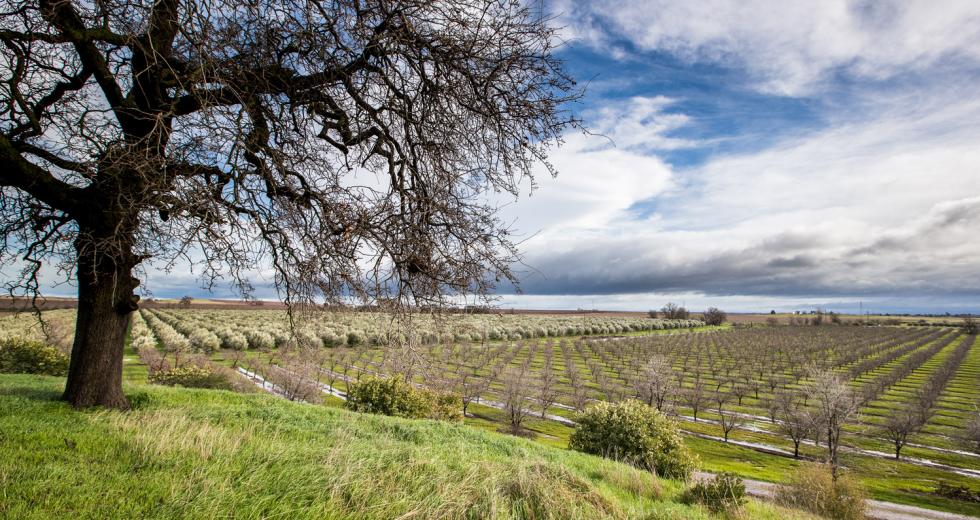Our mission is simple and vital,” says Michelle Clark, executive director of the Yolo Land Trust. That mission is to permanently conserve farmland in Yolo County.
As modern-day farmers find it increasingly difficult to deny the financial gains of selling their land for development, the Yolo Land Trust gives them a viable business option to conserve their property.
“Yolo County is unique in that the boundaries of the city are compact,” she says. “As you leave Davis, there’s [immediately] a farm and that’s unique — but that’s at risk.”
The most common way the organization protects farmland, Clark says, is through a conservation easement. According to their website, these easements are voluntary agreements between a Yolo landowner and the Trust, “in which the landowner agrees to restrict the use of the land to farming, ranching or habitat protection. The landowner continues to own, manage and operate the land, and pay property taxes, but the land must remain as a working farm.”
Paul Muller, a founding member of Yolo Land Trust and formerly on the board of directors, says they’re “very proud of the fact that we [are] an organization for farmland.” The Trust has permanently protected 11,000 acres of farmland, says Clark, through more than 60 conservation easements.
When the Trust began nearly 25 years ago, “it felt like it was very important to have some tools to educate policymakers; the Trust filled a hole where no one was doing that work,” Muller says. “It’s still an evolving tool, but it’s an important tool for keeping farmland in agriculture.”
Muller, also a co-owner of Full Belly Farm in Capay Valley, keeps a hand in the organization through organizing their annual A Day In The Country event, usually held in September.
“We were really the first organization to do Farm-To-Fork events,” Clark says.
A Day In The County is always held on a Yolo County farm, and is open to everyone, though tickets go very fast, she says. For the event, Trust farmers donate ingredients to local chefs who then create dishes.
For example, at the 2016 event, Sacramento’s Lucca Restaurant & Bar used lamb and tomatoes from Full Belly Farm, cinnamon basil from Rio Del Oro Botanicals, gypsy peppers from Capay Organic and Tokyo turnips from Riverdog Farm to create a tagine with tomato and onion, sausage, lamb bacon and apricot jam.
Clark says the event is “unparalleled” in Northern California and all of the money from the event goes toward the Trust. Last year, they raised more than $75,000.
In addition to their promotion of land conservation and the Farm-to-Fork movement, the Trust is heavily involved with habitat and native animal protection. Members of the Trust recently participated in a California Department of Fish and Wildlife study, Clark says, to track animals and their activities at night on the Elkhorn Ranch outside of West Sacramento — co-owned by Yolo Land Trust and Sacramento Valley Conservancy. The ranch was one of 300 sites monitored by the department.
“All of us appreciate being able to eat locally-produced food,” Clark says. “We’re trying to make sure the farmers are able to grow you that food.”



